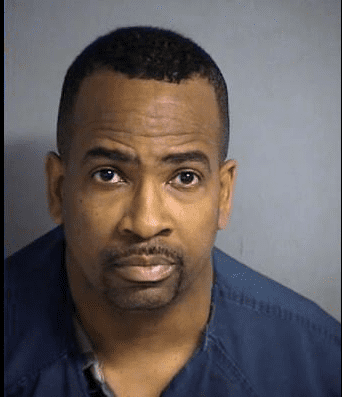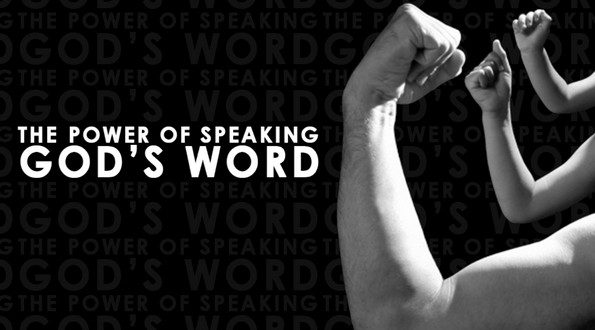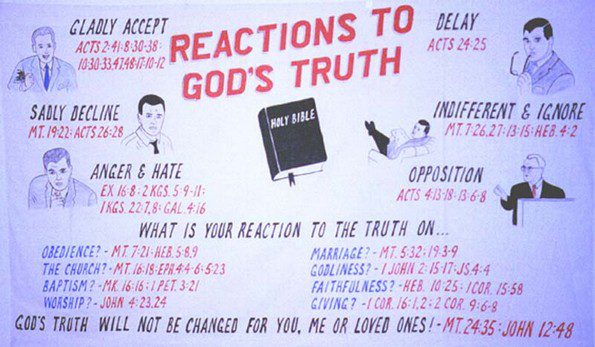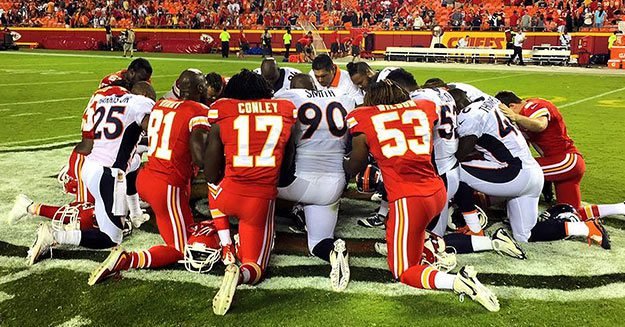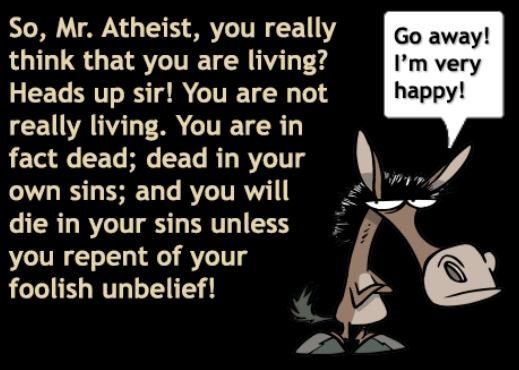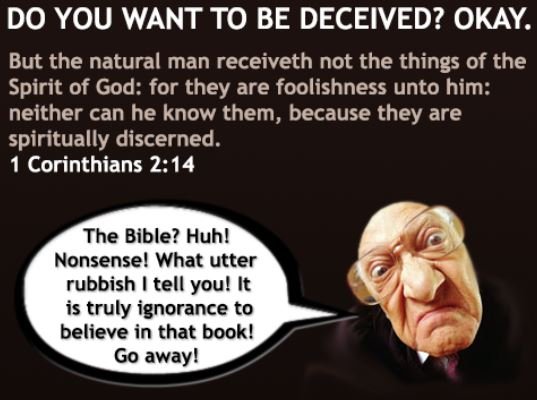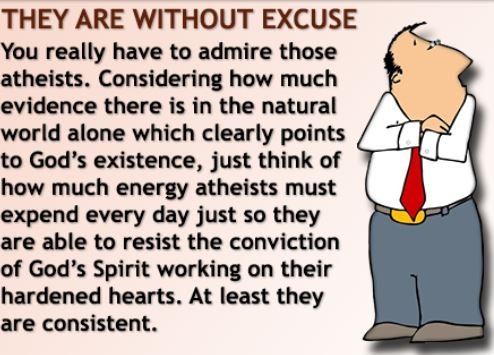
Originally published in 2010. Edited and corrected.
In August 2010, I wrote the following letter to the editor of the Defiance Crescent-News. It was published on August 10:
Dear Editor:
Attempting to formulate a reply to the responses to my letter to the editor has left me with quite a quandary. In 500 words I must respond to issues that deserve far more treatment than I can give them. Every letter writer committed the same error as Jack Palmer.
They assumed a priori that everyone believes in the Bible, their God and their version of Christianity. According to them, it is self-evident that the Christian God is the true God. They base their assertion upon the Bible, and therein lies the problem. They believe the Bible is the inspired word of God. I suspect most of the letter writers also believe the Bible is inerrant.
I do not believe the Bible is a supernatural book. The Bible is a manmade book of spiritual writings. It is rooted in a nomadic and agrarian economy that no longer exists. The last book of the Bible was written 1,900 years ago. While certainly the Bible has some value in the 21st century, it is not a book that should be used as a divine road map for life nor as a rulebook for governing society.
The Bible is best suited for use in tribal worship, cultural events and acts of personal piety. In other words, our society is far better off if the Bible is relegated to the same shelf as the great classics of the past.
Because I do not believe the Bible to be the divine truth, threats of divine retribution and judgment have no meaning to me. They did at one time. I was a student of the Bible for over 33 years, attended a Christian college and pastored evangelical churches for 25 years. As an agnostic, I have a humanistic worldview. It is a worldview that focuses on the here and now rather than eternity and a mythical home in heaven.
With all the suffering in the world, time spent pining for a mansion in the sky seems scandalous. The responses to my letter make it very clear to me that no two Christians agree on anything. Every letter writer espoused a different form of Christianity. Every letter writer has their own version of God and what constitutes a right, saving relationship with that God. This shows me that there is no such thing as Christianity (singular) in America.
Instead, what we do have is multiple Christianities, with every Christian picking and choosing what they want to believe from the Bible and then making God into their own image. Christians continue to use Pascal’s Wager with unbelievers to no effect. I would reverse the challenge and ask Christians, What if this is it? What if there is no heaven or hell?
What if you’ve spent your entire life seeking an eternal destiny that doesn’t exist? A life wasted that could have been spent enjoying the here and the now? A life wasted that could have been spent living and loving rather than trudging through a wicked world in search of a heaven and eternal reward that does not exist? We each have one life. This is it. Love and live.
Bruce Gerencser
Ney
What follows is my response to one of the Christians — an Evangelical pastor — who wrote to the paper to object to my letter.
The Sunday (August 2010) edition of the Defiance Crescent-News has the first, of what I am sure will be many more, letters to the Editor concerning my recently published rebuttal letter.
My youngest son asked me today if anyone has ever written a letter to the editor in support of my views about religion. I laughed and said No. As far as I know, I am the only person who has written to the newspaper and said “I am an agnostic.” (Some days I wonder, “what was I thinking”?) I hope my willingness to stand up and be counted will encourage others to do so. I know I am not alone. I have received their letters and email. They fear what might happen to them socially or economically if their agnosticism or atheism were made public. Their fears are well-grounded and I would not encourage anyone to take the same path as I have.
My children have to live with the fact that their dad is “the man who writes in the newspaper.” They have to field questions like “are you related to Bruce Gerencser”? If they answer yes, what often follows is a queer look, a look that says I want to tell you what I think or I want to ask you a question or two. Usually, once my children affirm their connection to me, a nervous silence ensues. It’s like, the questioner, all of a sudden, finds out he has been working alongside a spawn of Satan.
The first letter to the editor response I want to deal with is written by Ron Adkins, pastor of the Ney and Farmer United Methodist churches. I know Ron personally. Our family attended the Ney church for a number of months, and it was the last church we ever attended. One might say our last experience proved to be the proverbial straw that broke the camel’s back (though we met many wonderful people at the Ney church).
Ron is a young man. This is his first pastorate. (Ron later moved on to a different denomination, though he still lives in the area.) Prior to this, he was a professor at Ohio Christian University. Ohio Christian University is a Fundamentalist institution affiliated with the Churches of Christ in Christian Union. (I am sure Ron will chafe at the Fundamentalist label, but he also knows what my response is to that. Please see Are Evangelicals Fundamentalists?)
Ron has pastored the Ney/Farmer churches for about 2 years. When I asked him what his philosophy of ministry was, he told me it was “loving on people”. Evidently, as you shall see from his letter, that “loving on people” doesn’t include me. Some of what Ron writes in his letter reflects personal, private discussions he and I had during the time we attended the Ney church. One could object, saying “I told you that in private” but one thing I know about preachers, “don’t tell them anything you don’t want others to know.”
From reading Ron’s letter to the editor, I think it is safe to assume that my rebuttal letter upset some people in his church. Here I am, almost two years removed from attending Ney United Methodist Church — we left the last Sunday in November, 2008 — and I am still causing trouble. I realize my letter put Ron in a no-win situation. He is a great guy and he doesn’t like conflict. The last thing he needs is to tangle with Bruce. But my heresy demands an answer, so Ron penned a reply to my letter.
As you shall see in a moment, Ron tries to avoid making this personal. He never calls me by name. Instead, he calls me THE agnostic. Since the is a definite article and I am the only agnostic that has written to the paper, it is safe to assume that THE agnostic = Bruce Gerencser.
Now to Pastor Adkins’ letter. Ron’s letter appears as normal type. My response appears as bold italics.
To the Editor:
I have been averse to reading the latest letter to the editor from the agnostic because I personally find agnosticism trite for two major reasons.
Let’s get one thing out of the way right away. Ron is writing about my letter, and since I am the only agnostic who has written to the newspaper, he is directing his response to me and what I have written. Of course, his greater objective is to cheer on the faithful.
My response is personal. I guess I could hide my response target by saying I am responding to THE pastor, but, I am not one known for such subterfuge, so I want to make it clear that my response is directed to Pastor Adkins and his letter to the editor. I do hope that the faithful will be challenged and forced to ask hard questions about Christianity and the Bible. I also hope my fellow atheists and agnostics will be encouraged to continue on the path of intellectual freedom.
I am amused somewhat that Ron considers agnosticism trite, yet he expends quite a bit of verbiage in his attack of the agnostic view. Perhaps it was not as trite as he thought is was.
First, agnosticism is predicated on the premise of skepticism concerning the existence of God. The agnostic doubts the absolute truth about God (although some may believe in a First Cause), yet states an absolute truth by claiming God does not exist and that the answer is a humanistic worldview. If consistent, the agnostic would doubt his own statements, and furthermore, would doubt his own doubt that God does not exist, thus resulting in the probability that God could exist.
I don’t believe I have ever said God does not exist. I am, after all, an agnostic. In fact, Ron might be surprised to know that I have quite a bit of room in my agnostic worldview for a god (or gods) — much to the consternation of some hard-core atheists. (I would no longer make this statement now.) I am fairly certain that the gods which man has created so far are not gods at all. I cannot state categorically or infallibly –I’ll leave that to the Pope — there is NO God. Even Christopher Hitchens does not say there is No God.
The best answer, the best philosophy of living, in my humble opinion, is humanism. With humanism, the focus is on reality, the here and now. Surely, Ron, the history major that he is, knows that many humanists have a spiritual or religious dimension to their beliefs. But the humanist always comes back to what he can see and know. The humanist does not have the time to spend on pining about a future in heaven, the rapture, and the many other supposed events in the future that preoccupy and keep Christians from engaging a suffering and dying world.
What is humanism? The best statement I have found comes from the Humanist magazine:
Humanism is a rational philosophy informed by science, inspired by art, and motivated by compassion. Affirming the dignity of each human being, it supports liberty and opportunity consonant with social and planetary responsibility. Free of theism and other supernatural beliefs, humanism thus derives the goals of life from human need and interest rather than from theological or ideological abstractions, and asserts that humanity must take responsibility for its own destiny.
Christians often prop up the straw man of absolute truth. Everyone believes in absolute truth, they claim. Evidently Ron needs to meet a few real agnostics and atheists before he claims such a thing.
Personally, there are many things I believe to be true or factual. Based on what knowledge and information I have at hand, I have concluded that certain things are true. I know that the earth revolves around the sun and that the earth is not flat. I am relatively certain the science behind these claims is true. If I were left with only the absolute truth of the Bible, I would have to ignore what science teaches and I would be forced to accept that the sun revolves around the earth and the earth is flat (among countless other incredible, yet false. claims found in the Bible).
Ron writes of the absolute truth of God, and by God, let’s be clear, Ron means the Evangelical Christian God. Where does one find this absolute truth? The Bible. Ah, finally a concrete piece of information we can weigh in the balances. And that is exactly what I have done. I have weighed the claims of the Bible in the balances and found it wanting.
I find the claims made by academics such as Bart Ehrman and Robert Price to be compelling. I find Richard Wright’s book The Evolution of God to be a fascinating alternative story to the monotheism of orthodox Christianity.
My agnosticism rests squarely on the belief that the Bible is not what it claims to be and that it is not inspired, divine truth. At the end of the day, it all boils down to the Bible. If I do not accept the claims of the Bible, or the claims of what churches, denominations, popes, or pastors say the Bible says, then I cannot believe in the God that the Bible presents. I may still believe in a god but not the god of the Christian Bible.
Ron, I am sure, will appeal to nature and conscience as proof for God, but I would counter: how can one necessarily conclude that the God who gave us nature and a conscience is necessarily the Christian God? Would a person not initiated in Christian thinking come to the conclusion, by looking at nature, that there is a God and that that God is the triune God of the Christian religion? Doubtful. In fact, I can say impossible.
Second, if then, the agnostic is not a true agnostic, because of the self-defeating premise, then there is another motivation behind his self-proclaimed agnosticism.
Answered above, so I assume this makes moot the next point Ron makes. But Ron gets personal (divulging a bit of inside information about me) in what follows so I want to deal with it.
I have found that agnostics, who are not true agnostics, typically are angry at God because God does not operate the way they think God should operate. At other times they are angry because they have not received what they wanted from God. Like the undisciplined child who is angry at a parent using their only means of power, knowing they are powerless, will proclaim, “I hate you!” Nothing could hurt a parent more, and they know this.
The agnostic stands before God and proclaims in anger, ”You don’t exist!” Isn’t it interesting then that humans, created beings, desire God to act the way they perceive God should act? Furthermore, I find it pathetic to claim a humanistic worldview in which there is nothing, or no one, greater than ourselves to rely.
Anger. Ron, is right about my anger, but he is wrong about the focus of my anger.
The Christian God, the God of Ron Adkins does not exist. Why would I be angry at a fictional being?
No, my anger is directed towards organized religion. My anger is directed at Evangelical Christianity. I am angry over what was taken from me over the 25 years I spent in the ministry. I am angry over the wasted time and effort spent “doing church.” I am angry over my own selfish ambitions and my attempts at building a kingdom in my own name (as all pastors do; after all, why is their name on their church’s sign?).
I am angry over what the ministry and the church did to my wonderful wife and children. I am angry over countless parishioners whose lives are now shipwrecked because they drank from the well of organized religion.
Yes, I am angry and it feels good. For 33 years I lived in denial of my emotions, serving a God who was no god at all, a god that demanded self-sacrifice and self-denial. It feels good to be out from under such a burdensome weight.
Ron may consider humanism pathetic, and I might be tempted to say back at ya, but what humanism provides for me is reality. It is rooted in the common humanity we all share. I no longer have a need to pray, fast, tithe, and attend church. What humanism demands of me is doing. It demands of me the very things Jesus spoke of in the Sermon on the Mount. Humanism calls me to be fully human in an imperfect, marred world. It calls me to use what talents I have for the betterment of my fellow man.
Becoming an agnostic and a humanist has forced me to admit that most of the supposed altruistic works I did as a pastor had an ulterior motive. I didn’t love people for who they were. I loved them because I wanted Jesus to change them. If Jesus changed them then they would become a part of the church I pastored. End result? Bigger attendance and bigger offerings. (Trying to get a pastor to admit this is nigh impossible.)
It is an exhilarating experience to truly love people as they are.
Last, I would like to briefly answer the question which became the title for the agnostic’s editorial, “Writers espoused different views.”
I am glad of one thing, Ron used the word last. I despise the use of the word “lastly.” Ron gets 1 brownie point for using “last” instead of “lastly.”
I hope Ron is aware that the newspaper determines what the letter title is. I have been writing letters to the editor, op-ed pieces, etc. for over 28 years and I have yet to write my own title.
First, let me give some advice to all of those wonderful Christians who have been troubled by THE Agnostic. Remember an agnostic asks questions based on skepticism. Don’t feel as though you are in a corner. The quote at hand read, “Every letter writer has their own version of God and what constitutes a right, saving relationship with that God. This shows me that there is no such thing as Christianity (singular) in America”.
Truth is an objective fact expressed in a subjective way. It is obvious that one comes to the truth of Christianity or more generally religious truth, differently than one would come to scientific truth. God is not an object to be observed. God has made himself known. Faith, therefore, is a response in obedience, the thing agnostics hate.
I find Ron’s statement here astounding. Ron writes “Truth is an objective fact expressed in a subjective way.” Ron certainly believes the Bible is absolute truth. I would love to know if he really, really, believes the Bible is absolute truth (I have my doubts). Ron, without any evidence, believes that what the Bible teaches is an objective fact. The Bible is true because it says it is.
How does one know this? Through a subjective experience, God has made himself known. How do we know that? Because the Christian says so. Because Ron says so. Ultimately, then, it is a matter of faith.
If it is a matter of faith, why do so many Christians try to “prove” the truth of Christianity? Why do they attempt to use scientific methods to prove the veracity of the claims the Bible makes?
If it is a matter of faith, then why write letters to the editor attempting to discredit and refute my rebuttal letter? Would it not be better to rest in the belief that the God of faith, through the Holy Spirit, will take care of things? Surely God can take care of one lowly, insignificant, pimple-on-the-ass agnostic named Bruce?
Ron might be surprised to know that I still have faith. I have faith in the gods I can see, my fellow human beings. In my Christian days, I put my faith in a God whom I said was always there, but quite honestly I never really could find him. God was all-knowing and all-powerful. He was supposedly intimately involved in the minutia of my life, yet when it came to things that mattered — matters of life and death — God was nowhere to be found.
I would assume that Ron considers his weekly sermons to be subjective in nature? After all, he is preaching absolute truth in a subjective manner, yes? I don’t know of any preacher who would embrace such a claim, especially an Evangelical preacher. After all, the preacher is the man of God who speaks the infallible Word of God to the people of God. Not much subjectivity there.
I find no conflict in the different responses to the agnostic because the different individuals have expressed their belief and experience (“Pascal’s Wager”) in the one, absolute God in different ways. Faith in Jesus Christ as the Son of God and the Savior of the world is truth and is experienced by individuals.
Ron is being disingenuous here OR his two years in the Methodist church have worn down his Evangelical resolve. I realize he is preaching to the choir here, but any cursory reading of the letters written in reply to either of my recent letters will reveal full-blown heresy. Is Ron suggesting that subjective heresy is fine as long as it is done with the right intention? If so, it is time to give all the heretics of the past a place at the orthodox table once again. Each of them had sincere intentions. They loved their version of Jesus. Welcome, Brother Pelagius!
It is clear for all who are willing to see . . . no two Christians have the same version of Christianity. Christianity for most Christians is akin to going to a buffet, taking what you want, and leaving the rest. I don’t have a problem with this approach, but I would, at least, like Christians to admit it. They speak of orthodoxy and common belief, but such singularity does not exist except in denominational or church confessions or theological texts. Real-world experience tells me that all Christians believe what they want to believe and ignore the rest. (Any righteous men out there that want to offer their virgin daughter to the men of the city as righteous Lot did?)
This is why all Christians can describe some kind of personal experience, or relationship, with God through the Holy Spirit. Christian faith is an assent and obedience to the revelation of God.
On this point, I agree with Ron. It is all about the revelation of God. In other words, it is ALL about the Bible. As I have said time and time again, there is no Christianity without the Bible. I am an agnostic because I reject the truth claims of the Bible. I reject its claim that it is a supernatural, divine book that reveals God to humankind. It is a fallible book written by unknown men thousands of years ago. Certainly, the Bible has much to offer in way of personal spiritual guidance, but it is just a book, and it has no authority in my life. It has as much authority, and is just as inspired, as the writings of Mark Twain. (And no Christian can prove otherwise because the doctrine of inspiration is presupposed and cannot be empirically proved.)
Ron knew I was heading down the slippery slope towards agnosticism. Surely he can recall our discussions about the Bible. He, at one time, read my blog. Yet, when I stopped attending his church, that ended our interaction. Evidently, his time was better spent rescuing those who wanted rescued.
Yet, one would think that over the course of two years, in a town of 325 people, Ron or someone from the church would have stopped by and looked in on us. As I have struggled with debilitating neurological problems, problems Ron was well aware of, one would think that a visit might be in order. How can we help? Is there anything you need? One never knows what love and kindness might accomplish.
As is always the case . . . why spend time helping people who have no intentions of joining the happy band. If their ass is not in the seat, why bother?
There are six churches within a few miles of the home where my family and I reside. Prior to my recent coming out as an agnostic, our family would have been a great catch for any church. We are clean-cut, clean-livers. We look like Christians. We are talented. We have skills that any church would be grateful to use. We are loyal, faithful people. We are loving and kind. We are great non-Christian Christians.
But, not one pastor, one church leader, one church member, ever knocked on our door to invite us to their church. Even after we visited four of the six churches, no one bothered to try to befriend us and love us as Jesus would.
No, the truth is . . . no one gave a shit.
And then one day . . . neither did we.
Here are some of the other responses to my August 2010 letter to the editor:
August 2010
I cannot help but wonder what would make someone who has read the Bible (assuming the entire Bible from cover to cover), attended a Christian college (attending a Christian college does not make one a Christian) and been an evangelical pastor change his mind and become an agnostic humanist.
Richard Dawkins in his book, The God Delusion, contains a chapter entitled “The Poverty of Agnosticism.”
Dawkins is a renowned atheist, and you are probably wondering why I quote an atheist to make a point. In the said chapter he discusses many points concerning agnosticism but I would like to point out two items of interest. First he observes there is an “agnostic spectrum,” varying degrees of agnosticism, ranging from one — “I believe in God but have a lot of questions concerning his existence” — to seven — “I do not believe in God, period.”
Second, he also mentions two types of agnosticism — a temporary agnosticism in practice and a permanent agnosticism in principle. I wonder where Mr. Gerencser stands.
If he was once enlightened and has fallen as far as agnosticism, then there is still hope. The next step is apostasy on which the Bible is very clear. If he has sincerely studied the Scriptures then he knows what I am referring to (Hebrews 6). If not, then he should, perhaps, rethink his position. And, yes, I know his position on the inerrancy of scripture. However, the Bible is as relevant today as it was then.
Bob Palczewski
Defiance
August 2010
In answer to Bruce Gerencser’s letter in Sunday’s paper, he says he is an agnostic and no longer believes.
He said that at one time the Bible had meaning to him and that he pastored an evangelical church for 25 years. Evangelical churches should evangelize. What did he preach? Did he tell them that God sent His sinless son Jesus to die for our sins? John 3:16. He did. Did he ever truly accept Christ as his Lord and Savior? None of us ourselves will ever be good enough. You cannot prove to me that the Bible is not the inspired Word of God that tells us in Romans 10: 9-10 that if we believe and confess with our mouth the Lord Jesus that we will be saved.
Gerencser asked, What if there is no heaven or hell and we Christians have wasted our lives? If he is right and I am wrong, I have not lost anything. But if I am right and he is wrong, he has lost everything, his soul.
My husband is 85 and I am 82, and neither of us regret the almost 50 years of volunteer service for the Lord. For 13 years we sang Gospel and ministered with our young family in churches and the migrant camps. Last year after my husband’s bypass surgery and 34 years in the jail and prison Ministry we left it to devote more time to visiting and ministering in our local rest home.
If Gerencser thinks Jesus is not real, he should read our book. He says that we should live and love life. This has not been easy because we supported ourselves in our small businesses. But after 64 years of marriage we are still living and loving, thanks to Calvary.
Gertrude Hitt
Archbold
August 2010
In response to Bruce Gerenscer’s letter of June 20, I am one of those right-wing nuts and Christian Republicans that are dominating Ohio. I am proud to be a Christian. I will tell anyone anytime what I believe, but I won’t make you listen if you choose not to.
God gave us all a choice. What Jack Palmer said in his column on June 10 was the truth. He believes what he says. He has a right to say it. Bruce Gerencser has a right not to believe it, that is his choice. The last time I looked we in America have freedom to say what we want to say. That means we have the same rights as Gerencser has. I thank God for Jack Palmer. We need more like him.
God doesn’t leave us. I am thankful for that. The proof is when you feel Him yourself. God didn’t just save my soul, he saved my life. If I didn’t’ have God, I would not be here this day.
God’s heart breaks because of all the suffering in the world. It goes back to unbelief and the choice He made available to us, and when we choose the wrong way.
Gerencser said he gave thanks to his parents and all the others in his life. If it weren’t for God, he wouldn’t have them in the first place, so I thank God for my family.
Gerencser talked about being on the boat, but you can’t abandon ship unless you were on it to begin with. I hope and pray that one day Gerencser will get back on board.
No one is going to get rid of God no matter what he or she says or does. God answers me so gently in a soft and loving tone, saying “I am with you always, you will never be alone.”
Rose Molnar
Defiance
August 2010
I am writing in response to Bruce Gerencser’s letter to the editor in the June 20 Crescent-News. Gerencser stated in his letter that he wanted “to give credit to whom credit is due.” Well, I too would like to do that.
First, I am thankful to live in America where I have the privilege of writing a letter to the editor to express my opinion. Thank you to The Crescent-News for setting aside a page in your paper to print even those I may disagree with.
Many, many thanks to my parents and husband for working so hard to provide for us. In addition to those Gerencser gave thanks to, I would also like to thank the farmers who provide the food our nation enjoys. Also, a big thank you goes to those serving in the military, past and present, who are willing to sacrifice their lives in order to help protect our nation.
However, I realize that God is the one who actually provides all these. He gives good health in order to do the work. He gives knowledge to the doctors, teachers, counselors, etc. so they can help others. God provides the sunshine and rain the farmers need in order to produce their crops.
Everything we have or do not have comes from God. So, thank you dear God for all these, but most of all I thank you for my home in heaven.
Connie Elston
rural Oakwood
August 2010
Since Bruce Gerencser asked the question, let’s get it answered. Say I believe in a religion and I follow its tenants. I am good to my neighbors and strangers, help the homeless, donate to charities and do the best that I can. Now, when I die if there is nothing, then what exactly have I wasted?
And, if there is something after death, then I will be rewarded for my good works and remembered far longer then Gerencser ever would be. People will remember Mother Teresa or Billy Graham far longer than Gerencser. If you live for today like Gerencser wants and when you die, if there is a creator, you have to stand before the creator and explain why you did not believe and tried to get others to do the same. Somehow I don’t think that saying “whoops, my bad” is going to cut it.
But my other question would be while Gerencser claims to have been a pastor for 25 years and since being an agnostic is one step above being an atheist, as both of them deny the existence of a deity according to every encyclopedia and dictionary out there, is Gerencser now freely admitting that he was living a lie and that his whole life before becoming agnostic was a fraud?
And, if he was a pastor, then what about all the people he was supposed to lead? Is he now admitting that he deceived them as well? And, why bother becoming a pastor in the first place if you were just going to turn your back on your chosen religion, especially one that he has never mentioned? Something about his claim just does not sound correct.
Daniel Gray
Defiance
Bruce Gerencser, 68, lives in rural Northwest Ohio with his wife of 47 years. He and his wife have six grown children and sixteen grandchildren. Bruce pastored Evangelical churches for twenty-five years in Ohio, Texas, and Michigan. Bruce left the ministry in 2005, and in 2008 he left Christianity. Bruce is now a humanist and an atheist.
Your comments are welcome and appreciated. All first-time comments are moderated. Please read the commenting rules before commenting.
You can email Bruce via the Contact Form.


